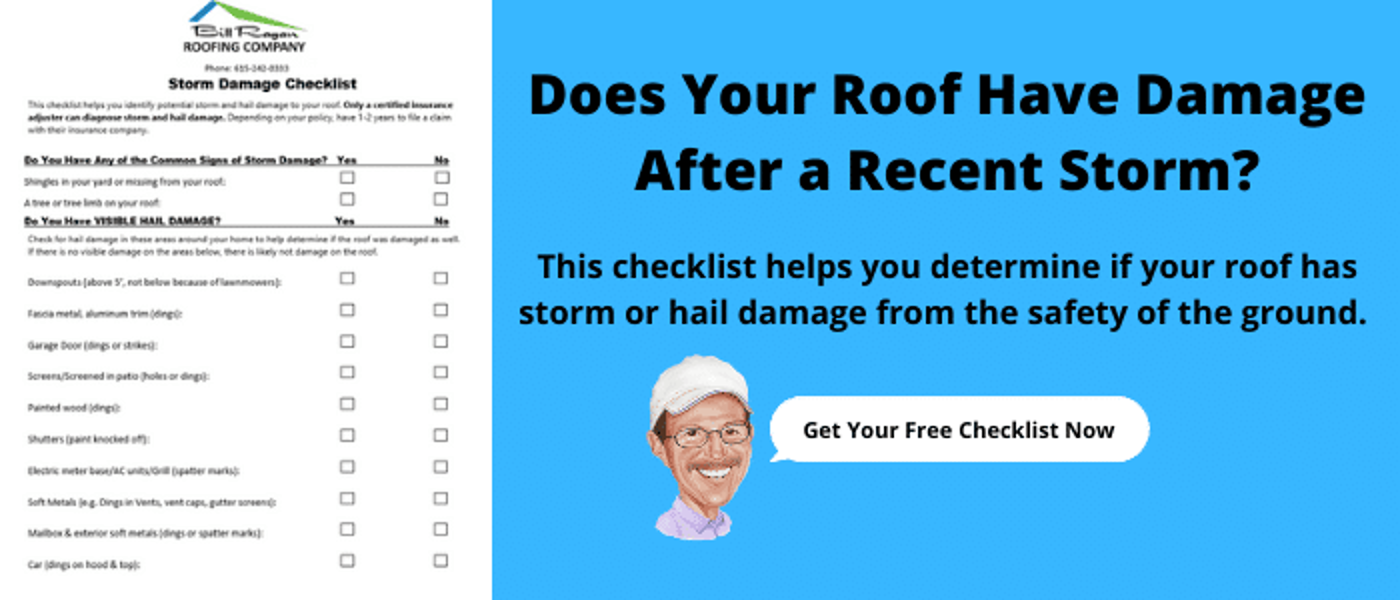Dealing with a storm-damaged roof is a stressful situation that gets even more stressful when insurance comes into play. But luckily, you pay your homeowners insurance premiums for this very reason.
So, as long as your roof has storm damage, you’ll get a payout to put towards a new roof. But there’s still the deductible to deal with.
No matter how high, you’ll have to pay the deductible when your claim is approved. However, you’ll find or hear about some roofing companies offering to pay deductibles.
So, should you let a roofing company do this if they offer?
For over 30 years, the team at Bill Ragan Roofing has provided transparent and honest advice on roof damage claims. Because of this, I’ll help you understand if you should take a roofing company up on their offer to pay your deductible.
This article answers the following questions:
- Should you let a roofing company pay your deductible?
- Why would a roofing company offer to pay your deductible?
- What else do you pay besides the deductible?
- What do you do if insurance won’t cover a full roof replacement?
Should you let a roofing company pay your deductible?
No matter what a roofing company says, you should never let them pay your deductible. A roofer offering to eat your deductible is one of the most prevalent scams in the roofing industry.
Not only is it illegal, but it’s also insurance fraud. However, even this doesn’t stop some homeowners from jumping at the opportunity when a roofing company offers to pay their deductible.
Maybe they think they’re getting a great deal or avoid paying their high deductible. But I promise you don't want to hire a roofing company that does business this way.
I also guarantee their workmanship will be poor, and you’ll have no recourse because you literally broke the law when getting your new roof. I get that saving money where you can is important, especially with a high deductible.
But is it really worth committing insurance fraud? That’s an easy no. That’s why you should NEVER listen to a roofing company that’s willing to pay your deductible.
Why would a roofing company offer to pay your deductible?
Now you know why you shouldn’t let a roofing company pay your deductible. But why would they offer this in the first place?
The simple answer is to win your business. These companies usually offer the lowest price in the area, which already makes them appealing.
But then they offer to pay your deductible to make the deal even more tempting. However, this is where homeowners get taken advantage of every time.
What they don’t tell you is that you’ll be getting the lowest-quality components and materials while using the cheapest labor for installation. And I guarantee they won’t warranty or stand behind their work.
So not only did you commit fraud, but you also got a roof that I guarantee will have problems. As I said, I understand saving money is important.
However, you’re setting yourself up to be taken advantage of by a bad roofer by jumping at the cheapest price.
What else do you pay besides your deductible when your roof damage claim is approved?
Now you know how important paying your deductible is and why you shouldn’t look for the lowest price. But will you have to pay anything else other than your deductible when getting an insurance roof replacement?
That depends on the type of insurance policy and how much money your insurance company ultimately gives you. Both an Actual Cash Value and Replace Cost Value policy means you’ll get a payout, but the amount for each is drastically different.
Actual Cash Value policy
With an Actual Cash Value (ACV) policy, you get the depreciated value of your roof as it stands today. This policy only gives you a payout for what your roof is valued at the time of the claim.
This obviously won’t be enough to cover the cost of a full roof replacement. In this scenario, you’ll use the depreciated payout and pay for the rest out-of-pocket.
It’s tempting to find a low price or even a roof that costs the same amount as your ACV policy gives. But remember, the cheaper the price equals cheaper quality and labor.
Replace Cost Value policy
With a Replacement Cost Value (RCV) policy, your insurance company gives you a payout to cover what it costs to replace your roof with a brand-new version of itself. This means your insurance company is supposed to give you enough to cover the full cost of your new roof.
Like an ACV policy, you’ll get a check for the actual cost value of your roof, and the insurance company holds back the rest in recoverable depreciation. After your roof replacement is completed and prove (photo evidence) that it was done per the claim, the insurance company sends the second check to cover the rest.
But just know that your insurance company only pays to restore your new roof to a brand-new version of itself. If you want to upgrade certain areas, like upgrading 3-tab asphalt shingles to architectural asphalt shingles, you’ll make up the difference out of pocket.
What do you do if insurance won’t cover the full cost of your new roof?
While an RCV policy is supposed to cover the cost of your full roof replacement, it doesn’t necessarily mean you'll get that much. There’s actually a strong possibility your insurance estimate will initially be lower than the estimate you get from a roofing contractor.
This is because insurance companies usually leave off crucial line items, labor costs, or other things a roofing contractor needs to do the job right and be profitable. But what are your options if this happens?
The first option is to supplement the items missing from the claim. Just know that this requires you putting in time and effort to get each or most of the line items covered.
A reputable roofing contractor can provide tools and/or verbiage to help you do this. And speaking from 30 years of experience, insurance companies listen to policy owners way more than they listen to roofing companies.
The next option is using the insurance money to cover as much as possible and make up the difference out of pocket. While this means the insurance payout won’t cover the full amount, you’ll still get a large portion covered.
The last option is financing your roof replacement like you would a new car. This lets you do what you want with the insurance money while making monthly payments.
But remember, you must pay your full deductible no matter what. So, pick the option that works for your situation and budget.
How do you avoid roof damage insurance scams?
After reading this article, you now understand why you’ll have to pay your deductible, how your policy affects the payout, and your options if insurance won’t cover a full roof replacement. By following this advice, you’ll be able to avoid one of the most common scams in the roofing industry.
However, the misinformation and scams don’t stop there. The last thing you want is to get taken advantage of by a roofing company when dealing with the stress of roof damage.
Wouldn’t it be great to avoid these roof damage insurance scams altogether? Luckily, you can.
You just need to know what to ask and how to spot a scam from a mile away. That’s why I wrote another article with the tips you need to get ahead of potential scams before a roofing contractor knocks on your door.
Check out 6 Tips to Avoid Roof Damage Insurance Scams so you don’t fall victim to the dark side of the roofing industry.



